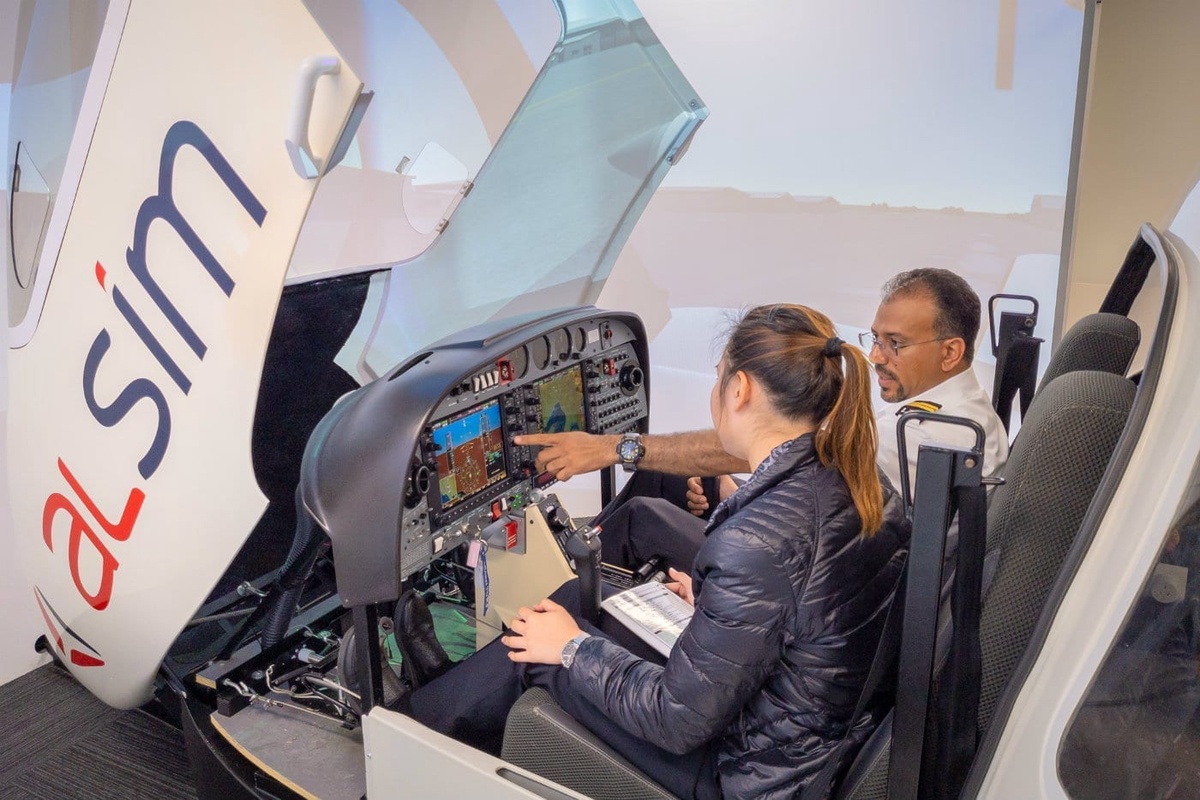Obtaining a Recreational Pilot License (RPL) is an exciting and rewarding endeavour that opens up the skies to individuals who are passionate about aviation. This license, while offering a pathway to enjoy the thrill of flying, comes with its own set of benefits, and a number of limitations, and is suited to both individuals who want to be able to fly for fun and for those who are considering flying for a living.
For those who want to become commercial pilots, the RPL is their first step towards a flying career Gaining this license provides a good opportunity to see the aviation industry up close and make an informed decision.
Personal freedom and adventure
As a recreational pilot, you have the freedom to explore the skies at your own pace. You can embark on spontaneous flights, discover new destinations, and experience the thrill of aerial adventures. This sense of freedom and adventure is a unique and rewarding aspect of recreational flying.
Skill development and knowledge enhancement
The process of obtaining a pilot's license enhances your cognitive abilities, decision-making skills, and technical proficiency. It's a continuous learning journey that promotes personal growth.
Community and networking opportunities
The aviation community is known for its camaraderie and shared passion for flying. Being a recreational pilot opens up opportunities to connect with like-minded individuals at airshows and aviation events. Networking within this community can lead to valuable insights, shared experiences, and lasting friendships.
Stress relief and well-being
Flying provides a unique form of stress relief and mental rejuvenation. The experience of taking control of an aircraft and enjoying the panoramic views can be meditative, offering a break from the demands of daily life. The focus required for flying can also serve as a healthy distraction, promoting mental well-being.
An RPL is the first training syllabus for those who want to learn to fly
Once an individual holds an RPL, they gain the privilege of flying solo. This independence is a major milestone and provides a sense of accomplishment. Recreational pilots can enjoy the freedom of taking to the skies on their own, exploring new horizons, and perfecting their piloting skills.
With an RPL, pilots can engage in local flights and explore their surroundings from a unique vantage point. Whether it's flying over picturesque landscapes or discovering nearby towns, recreational pilots have the flexibility to embark on short, enjoyable flights without the need for extensive planning.
As mentioned already, the RPL serves as a stepping stone for those considering more advanced pilot certifications. It provides a foundational understanding of aviation principles and skills, laying the groundwork for individuals who may decide to pursue commercial pilot licenses in the future. If applying for aviation schools in Australia, a current RPL is advantageous.
Limitations of a recreational pilot license
The recreational pilot license in Australia and other countries does, of course, come with limitations, so it does pay to be aware of these before starting out, just to ensure it meets personal requirements.
Geographical restrictions:
Recreational pilots are limited in the distance they can fly from their departure point. As this training doesn’t include navigation, flights are limited to 25Nm of the departure airport.
Daylight and visual flight rules (VFR) conditions
Recreational pilots are typically limited to flying during daylight hours and in conditions of good visibility (Visual Flight Rules). This restriction ensures a safer flying environment for those with relatively limited experience.
Single-engine aircraft
The RPL allows pilots to operate single-engine aircraft only. This limitation narrows the range of aircraft that can be flown, excluding more complex or multi-engine planes. It's important for recreational pilots to be aware of these restrictions when choosing their flying experiences.
Passenger limitations
Recreational pilots are restricted to carrying up to 3 passengers. While this may be sufficient for those flying primarily for personal enjoyment, it can be a drawback for individuals seeking to share the experience with larger groups.
Who is well-suited to be a recreational pilot?
Recreational pilots are often individuals who are deeply passionate about flying as a hobby rather than a career. They find joy in the act of piloting themselves and view flying as a recreational activity that enhances their quality of life.
Those who appreciate the beauty of their local surroundings and want to explore them from a unique perspective are well-suited to being recreational pilots. Flying within their region allows them to discover new landscapes and enjoy the freedom of the skies.
Recreational flying may be better suited for individuals with flexible schedules, allowing them to take advantage of good weather conditions during daylight hours. This flexibility ensures that flying remains an enjoyable and stress-free activity.
Whether one is flying in the hopes of turning it into a career, or simply doing it because it is fun, the RPL is the way to open the door to the skies.


No comments yet